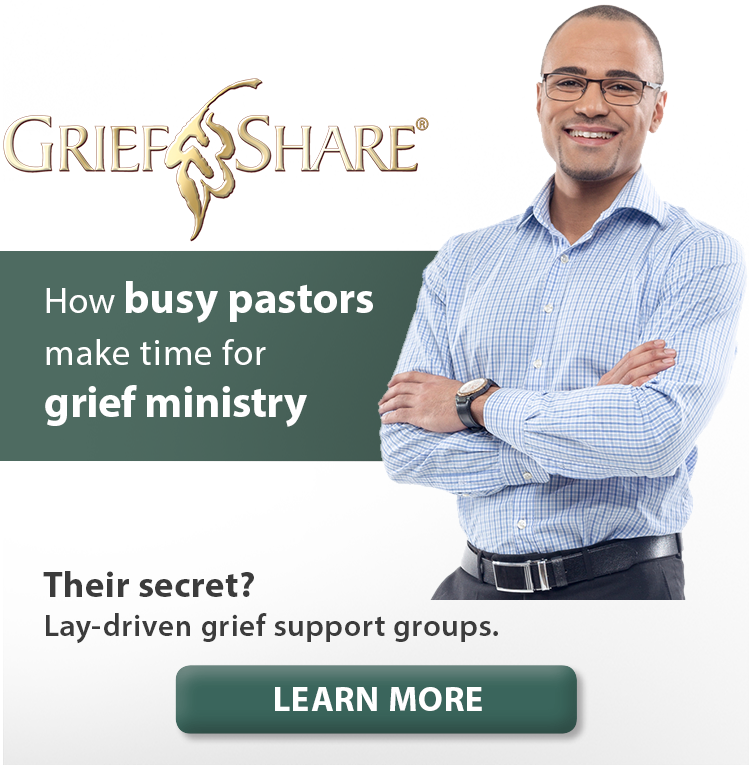
When you’re helping grieving Christians, it’s important to remember that they’re doing more than grieving their loved one’s death. They’re also evaluating their response to their loved one’s death. They’re wondering, Am I grieving like a Christian should? Do my feelings of despair indicate a lack of faith? Am I being a bad example to others who look up to me? I believe in what the Bible says, but why do I feel like God’s not here?
Brad Hambrick, counseling pastor at The Summit Church in Durham, North Carolina, explains that this self-evaluation often leads grieving people to feel guilt over the way they are responding to their loved one’s death:
Grief is confusing, and grieving people often wonder, Am I doing grief right? As soon as that question comes into their minds, the necessary implication is, Maybe I’m doing it wrong, and “wrong” is a guilt word. It becomes this sense of condemnation that just echoes with everything else in their lives that feels off base right now. It becomes another one of those inroads where guilt begins to magnify the experience of grief.1
How can you and the care leaders in your church help grieving people who feel like they are grieving the wrong way? Here are a few suggestions:
- Talk to grieving people about their experience of grief. This isn’t something that you talk about immediately after a loved one dies. Months after the grieving experience, you could encourage your care leaders to ask, “Before your grief experience, what preconceived ideas did you have as to how a Christian should grieve? How have these ideas resulted in questions or struggles in your own grief walk?” If the people share feelings of confusion or guilt, the care leader can ask them how they’ve been dealing with those questions and concerns. Letting people know that it’s healthy and normal to question the appropriateness of their grief can be a huge relief to them.
- Present realistic views of what the grief process is like. If you give the impression that Christians are grief-proof or you consistently hold up those who quickly “bounce back” from their losses as the example of how mature Christians respond to grief, you’re setting people up for guilt. A better way? Let people know that everyone’s grief experience is unique and that even the most mature Christians experience confusing and intense emotions after the death of a loved one. While their pain will eventually decrease in intensity, frequency, and duration, people will still have reminders of the pain, which leads many to say that the pain of grief never completely goes away.
-
Remind people that no one grieves perfectly. This is another point you need to reinforce through your preaching so that people will have heard it before they walk through the grief process. Knowing this beforehand will lay the foundation for them to honestly evaluate their responses to grief with the knowledge that Christ has covered their sin and that He uses even the grief process to make us more like Him. Again, this is definitely something you want to share from time to time with your people before they enter into grief. In the midst of suffering, this is a hard lesson to learn. Susan Lutz, a featured expert in the GriefShare program, explains what our people need to grasp about God’s expectations for grieving people:
I don’t think it’s possible for anybody to grieve perfectly, except the Lord Jesus. In fact, He uses the grief process to show us where we typically miss Him or turn away from Him and want to go our own way. I think God is very aware that He’s showing us these things when we’ve sustained a major body blow in losing somebody we love. It has affected us emotionally, spiritually, mentally, physically, relationally. So, to assign yourself the job of “I’m going to do this perfectly,” when you’re so severely wounded, is an impossible assignment. God would never expect that of you. On the contrary, He says, “I am with you in trouble.”
Susan goes on to point out that remembering the essence of the gospel enables people to honestly and fearlessly examine the way they respond to suffering.
Anytime God shows you something that’s amiss in your life, it’s not to push you away, it’s to pull you closer. He sent Jesus for that very purpose. He said, “I’m sending my Son to pay for everything you have ever said, thought, or done that’s wrong.” That’s why Jesus came, for all this stuff we discover about ourselves all through life—including in grief. That lifts the burden because the sins have been paid for. He said, “[Your sin is] a shock to you right now, but it’s not a surprise to me.”2
- Communicate that God doesn’t rush people through their grief. Many Christians reason this way: Christians should always be joyful. And if God wants us to be joyful, then He wants us to stop grieving. That’s why some grieving people think God is rushing them through their grief. You can help your people avoid that thinking by reminding them that God thinks of us as His children. As Brad Hambrick explains, “God is not looking at us thinking, ‘How productive can this person be? How can I get the maximum return on my investment?’ [Rather, He is thinking,] ‘I relate to you as my child. You are going through a difficult season, and the first thing I want to do is to give you rest and make sure you’re prepared for the journey ahead.’ One of our callings during a season of grief is to respond to God’s gracious care for us as His child and allow Him to give us rest through the care of other people.”3
Consider using training opportunities to make sure your care leaders are aware of the common questions grieving people ask about their grief. Also look for opportunities in your messages to make your members aware of God’s expectations for suffering people. If you do both, you’ll prevent some people from layering unwarranted guilt on top of their grief, and you’ll have care leaders ready to support those whose grief is mingled with guilt.
Sign up for your FREE newsletter!
- Church Initiative, GriefShare interview with Brad Hambrick, December 2011.
- Church Initiative, GriefShare interview with Susan Lutz, March 2013.
- Church Initiative, GriefShare interview with Brad Hambrick, December 2011.


